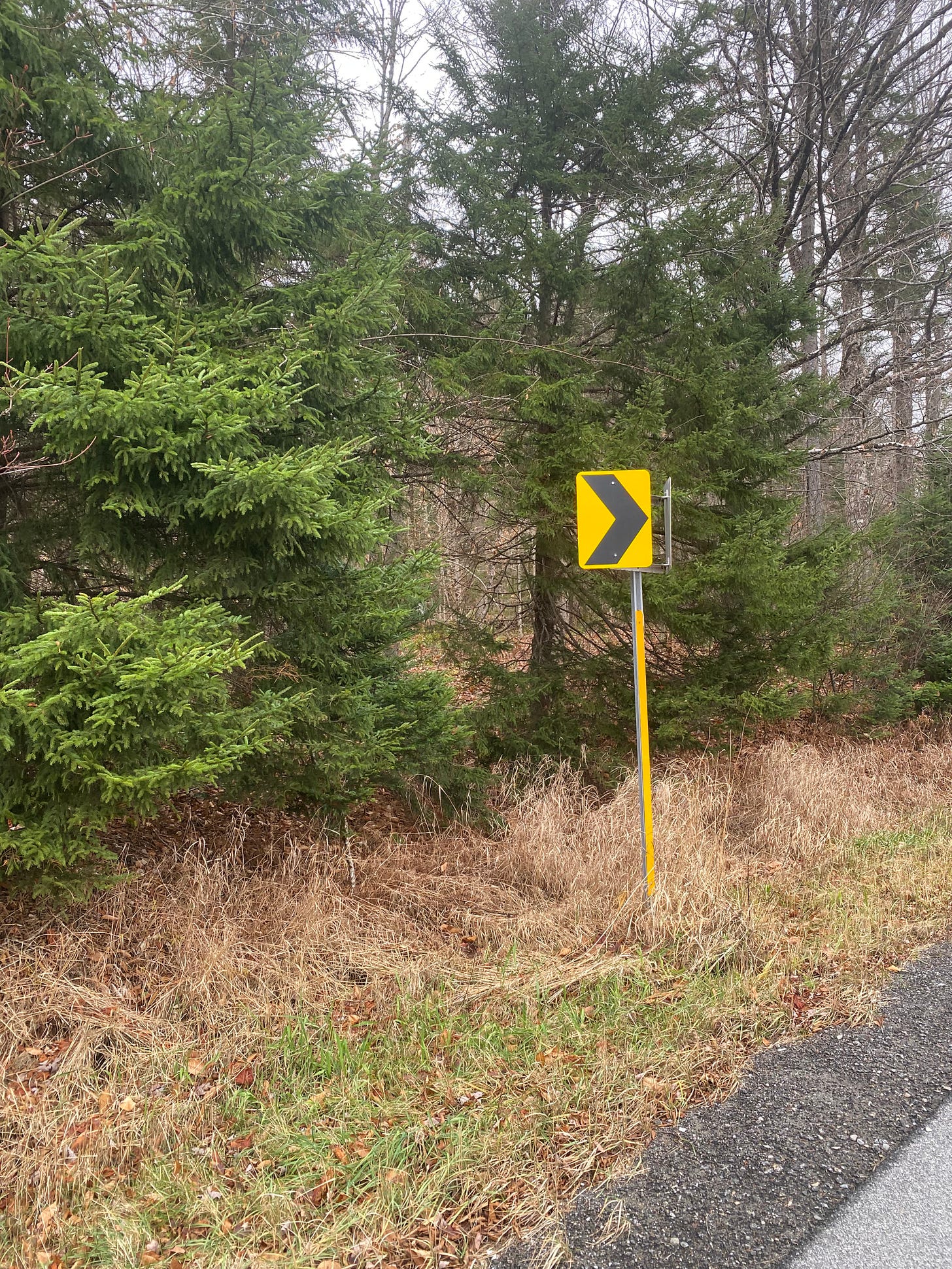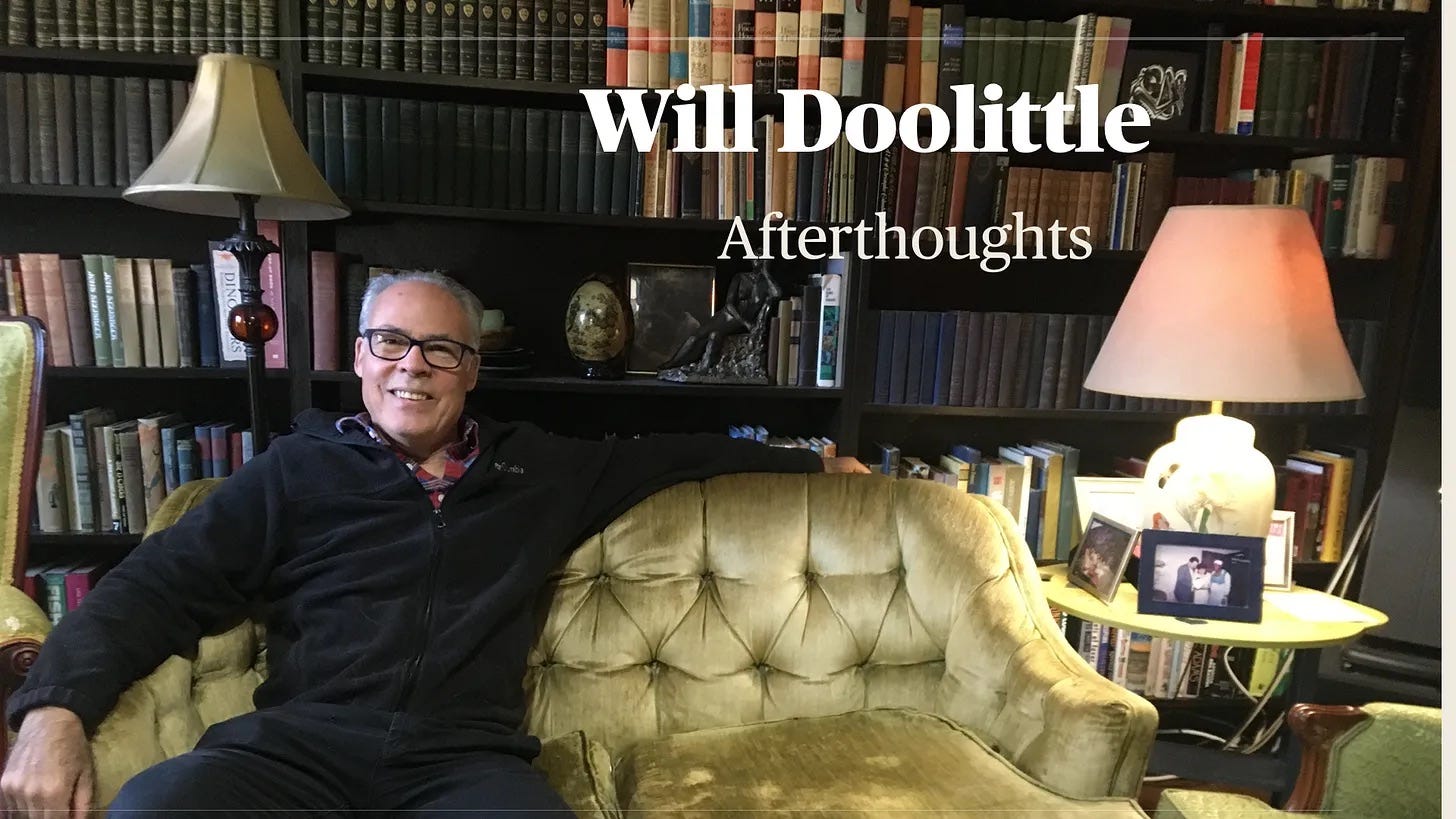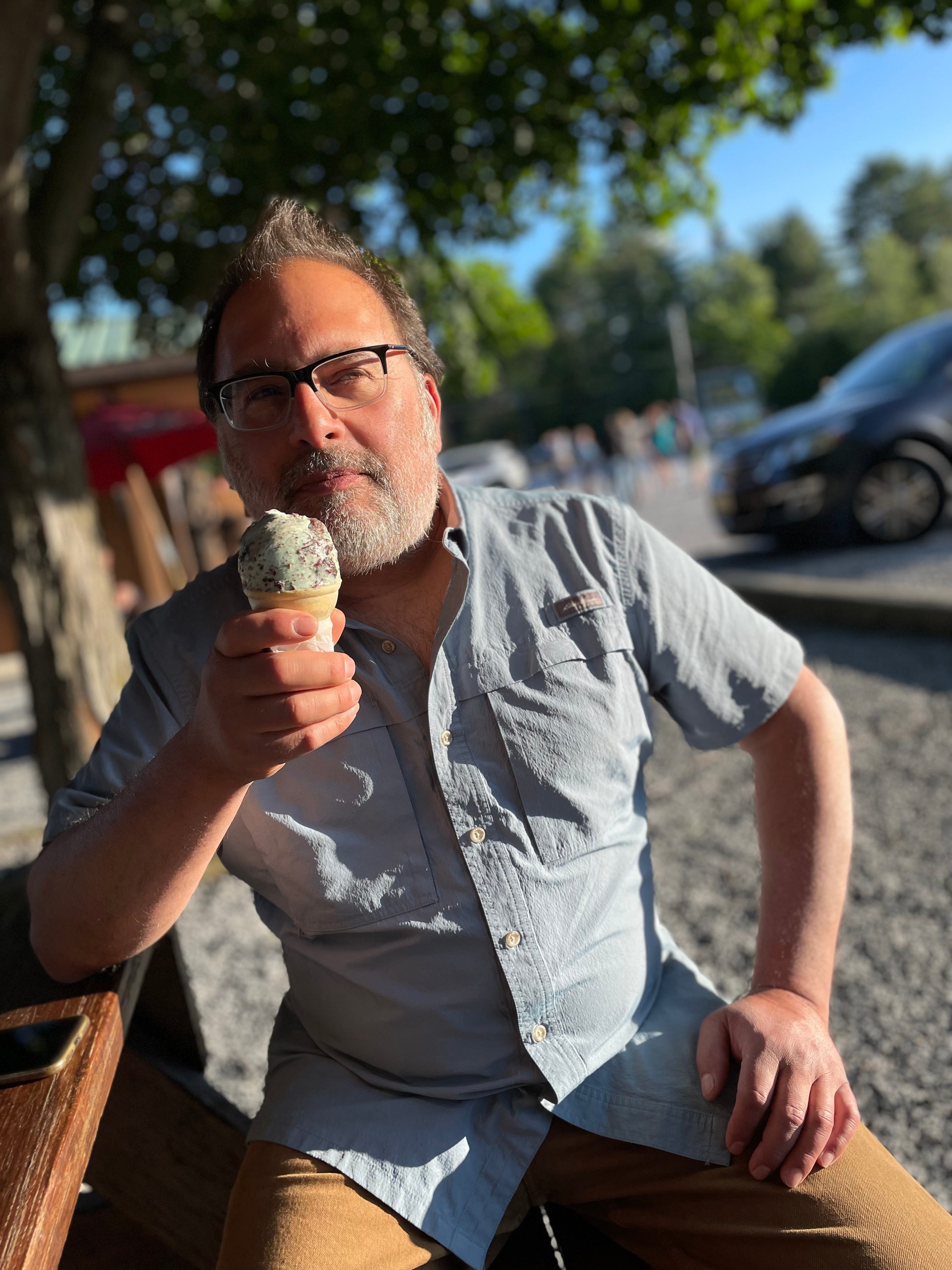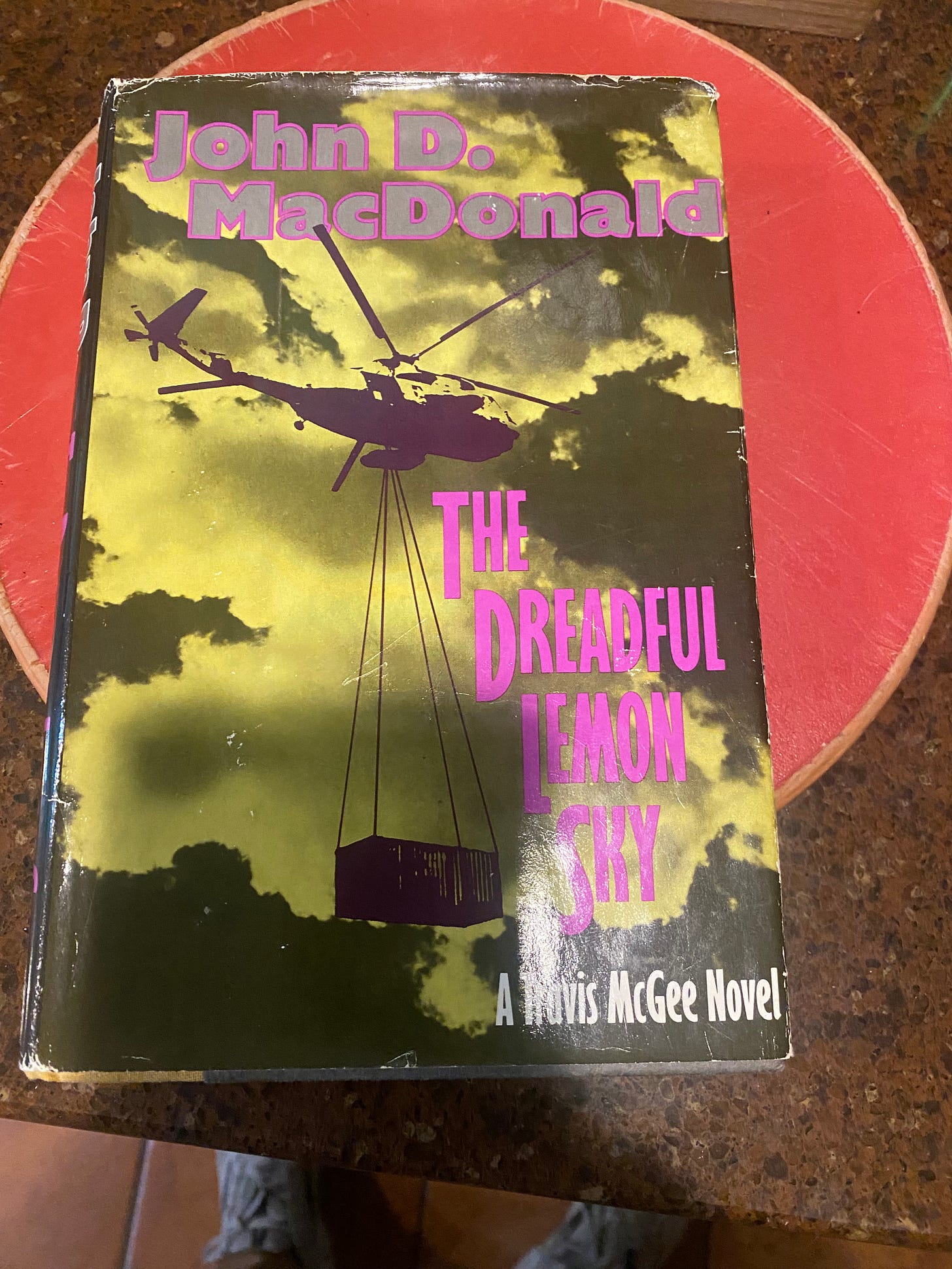Don't despair, get busy with pushing back
Read Mike Parwana for fun and insight
Please consider supporting The Front Page with a paid subscription: HERE
A couple of retired doctors from Queensbury I’ve spoken with over the past few weeks are setting an example for the recently disheartened by keeping themselves busy in a manner that is both constructive and rebellious.
Christopher Hoy, who was our family’s doctor at Hudson Headwaters Health Network until he retired a year ago, has been taking part in climate protests, including a handful this summer at Citibank’s headquarters in New York City.
“You have to retire to something not from something,” he said.
So, in addition to exercise, which he likes, and grandchildren, whom he loves, he has taken up climate activism to give himself a continuing sense of purpose.
“As upset as I am about the election, the climate stuff isn’t going away,” he said in an interview that actually took place during the campaign, before the election gave us something to really be upset about.
The protests were held in the plaza in front of Citibank headquarters in New York City, arranged by an organization called Third Act, which coordinates climate and democracy activism among Americans who are 60 and older.
The group chose Citibank because of its record of funding fossil fuels, to the tune of $396 billion in the eight years since the Paris Agreement on climate change was signed. That figure comes from the Sierra Club’s annual Banking on Climate Chaos report (click to read more).
The agreement was supposed to shift investment toward green energy, but the world’s 60 largest private banks have financed fossil fuels since then with a gusher of $6.9 trillion in cash.
Hoy, who is 75, worked for 50 years as a physician, after training in internal medicine and nephrology. His career was bookended by two pandemics — AIDS in the 1980s and Covid in the 2020s.
He grew up in San Francisco in the 1960s and has been involved — “at different levels, never anything fancy” — in causes that protect civil rights and protest war and violence and the proliferation of nuclear weapons.
A highlight of his climate activism so far was getting arrested in New York, which proved anticlimactic when his case was dismissed — “for bureaucratic reasons,” he said.
But his participation is helping him preserve “some sense of self worth and involvement in the world,” he said.
“Renewable energy has not ended up reducing the amount of fossil fuels being burned. It is not reducing the amount of carbon dumping into the atmosphere,” he said.
So the temperature keeps rising, and he, and many like him, must keep rising to the occasion.
“I love medicine, I love practicing. But you just can’t work forever,” he said.
What you can do is find other ways to be useful, with activities that help your community and your country and push back against the agenda of the our just-elected Republican regime.
Both the helping and the pushing back can also be accomplished by reaching out to immigrants, as Richard Leach is doing.
Leach is a retired internist and infectious disease specialist from Queensbury who founded a medical mission to Guatemala in 1997 and has, over the last few years, helped to set up two groups that facilitate immigration to the Glens Falls area — Adirondack Welcome Circle and Adirondack Regional Immigration Collaborative.
The Welcome Circle brought a Ukrainian family here and provided them with housing and covered other costs for two years. That family is now supporting itself, and the Welcome Circle is helping to settle a family from Colombia here. The family first came to the U.S. at the Arizona border, where they filed an asylum claim.
The Welcome Circle is also working to bring a Rohingya family here— a mother and father and two young children — from Cox’s Bazar in Bangladesh, where the family lives in the world’s largest refugee camp.
The Rohingya are a persecuted Muslim minority in Myanmar. About a million people, many of them Rohingya, live in the camp in Bangladesh, in dangerous conditions, with inadequate food, shelter and medical care.
The Adirondack Regional Immigration Collaborative was formed recently to bring together regional organizations to raise money, share information and provide legal and other assistance to immigrants. It is meant to be “a stronger voice” for their cause, Leach said.
The effort is painstaking — families may speak little or no English, and helping them start from nothing in a strange country, along with taking up the legal/bureaucratic gauntlet of immigration, is a big task that takes years to complete. But the work has an exponential effect, because, once families are established here, they reach out on their own initiative to bring in friends and relatives from their homelands.
“At least seven Ukrainian families are living here now,” Leach said.
We need immigrants’ entrepreneurial spirit and work ethic. Our schools, with dwindling enrollments, need their children.
“What is needed is organizations telling stories of how much we prosper on the backs of these hardworking folks,” Leach said. “A voice needs to be generated. That is what ARIC is trying to do.”
The Trump administration will be trying to silence that voice as of Jan. 20. We must stop that from happening.
Say What
Mike Parwana’s substack newsletter, “Mike Parwana said what?,” which is subtitled “Idiosyncratic shouting into the void,” is not only amusing and frequently guffaw-out-loud funny but also insightful into local political goings-on. His latest retells the tale of Alfred Snow, who was hired two years ago to be Warren County’s tourism director but quit after about two months with a remarkably candid letter of resignation.
If you missed this story when it happened, as I did, Parwana’s retelling is, I bet, more amusing than the original and more confusing, too, since it’s never clear with Mike when he’s joking. I thought, for example, that the name “Alfred Snow” was coined by him for the purpose of punning about snowless winters in Warren County. He does make the pun, more than once, but Alfred’s name really is Snow.
Road trip
We headed into the center of the Adirondacks on Friday, driving northwest from Warrensburg on Route 28 with the intention of turning at Blue Mountain Lake and heading southwest to Old Forge. I’ve never spent any time in Old Forge, and I’m curious about it.
But we made it only to the general store in Blue Mountain Lake, which, unfortunately, was closed for the season. At that point, our intrepid urge to penetrate further into the park petered out. We turned around and headed back southeast on 28. On the way, we came across an elegant young buck, his coat all one dark gray — a charcoal color — with a sizable rack of antlers, standing still in the road. He eyed us and the pickup truck ahead of us for a few seconds, after we stopped, then leapt into the woods. I pulled over and ran back along the shoulder, and there he was, about 10 yards into the woods, but before I could push the button on my phone to get a photo, he was gone.
Here’s the photo:

Here is the general store in Blue Mountain Lake:

Reading
I finished “Vanity Fair,” which was great, although a strain on my 64-year-old eyes, since the edition I was reading had small type, so I kept losing my place, and, in the dimness of my reading light at night, my eyes would swim. But it’s a sharp examination of the constriction of women in 19th century England — the very few roles open to them in adulthood and the near impossibility of living anything resembling an independent life. It’s also tremendously entertaining.
As a palate cleanser, I picked up one of my favorite novels, “The Dreadful Lemon Sky.” by one of my favorite writers, John D. MacDonald. I’m going to excerpt the climactic paragraph of the novel here, because it’s so great, but if you’re interested in reading the book and don’t want to read anything in the way of spoilers, you should skip it:
“Scorf got his left hand up to ward off the big slow slug. He was reaching for the belly gun with his right hand. The big slug went through the palm of his left hand and hit the shelf of brow over the left eye. The resistance of the thick ridge of bone snapped his head back and broke his neck. The white hat went sailing over the hood of the car. The relentless chunk of lead plowed through the brain tissues and took off a hunk of the back of the skull as big as an apple. It was all very immediate and messy. It spattered blood and tissue over the front half of the Cougar. I saw it all in slow motion. It was in the hard and vivid light of the hour before noon. It was a day of almost stagnant air. The wind had been moving steadily from north to south, bringing to Florida’s east coast all the stained and corrosive crud of Birmingham and the rest of the industrial South. The horizons were whiskey-stained, and the sky above was a pallid saffron instead of blue. The bleared sun made harsh studio lighting on the parking-lot scene. And Harry Hascomb saw Captain Scorf’s horrid death under the dreadful lemon sky.”





An uplifting column Will. Thanks for the reminder that there are still people out there willing to do the good work helping immigrants who come to our shores to seek a better life for their family and those good people willing to defend our planet in hopes of keeping a sustainable Earth for future generations.
Thanks for the plug Will! Just as clarification, I am pretty much always joking but the vast majority of jokes in this world are not very funny, they’re true.
But (and this is NOT a joke) folks can visit, Like and/or Follow “Adirondack Regional Immigration Collaborative - ARIC” on Facebook. The group’s website is under construction, may be live now, and there should be a link on the FB page.
Thanks again!